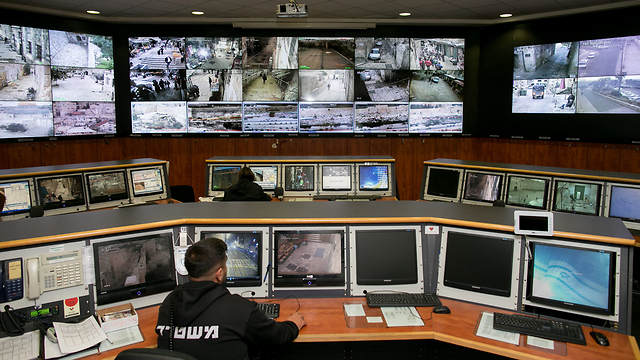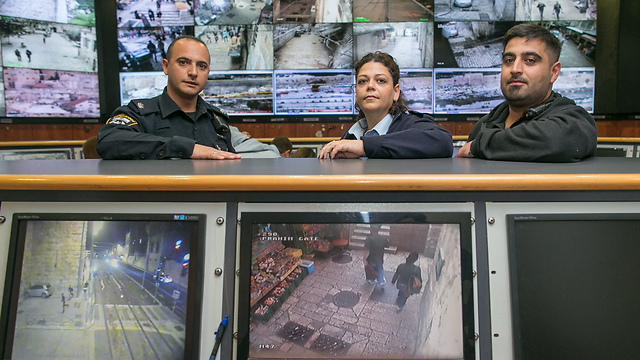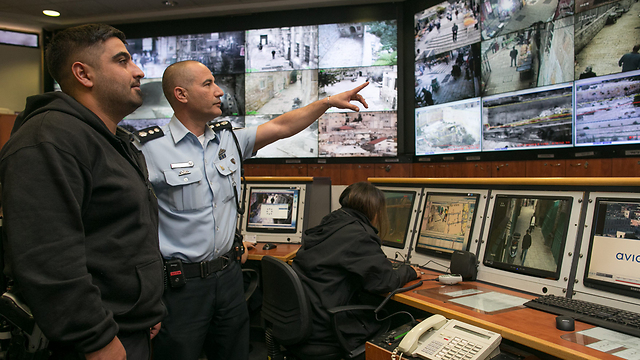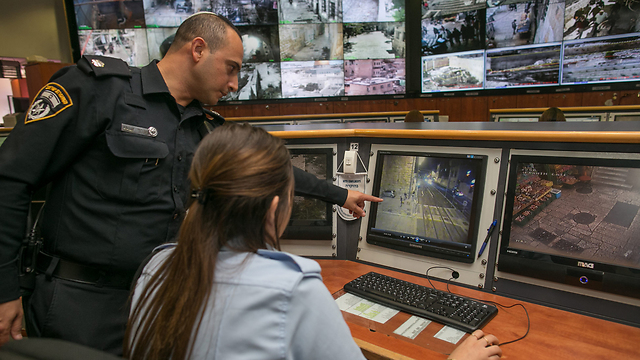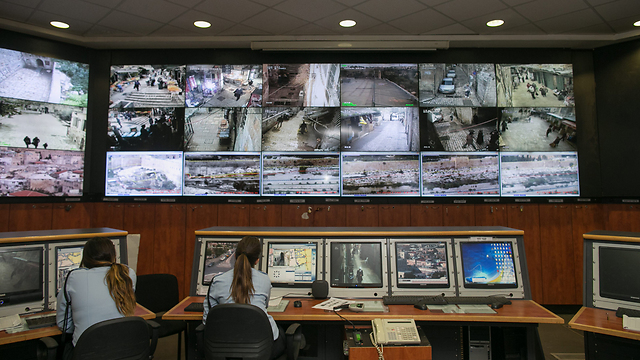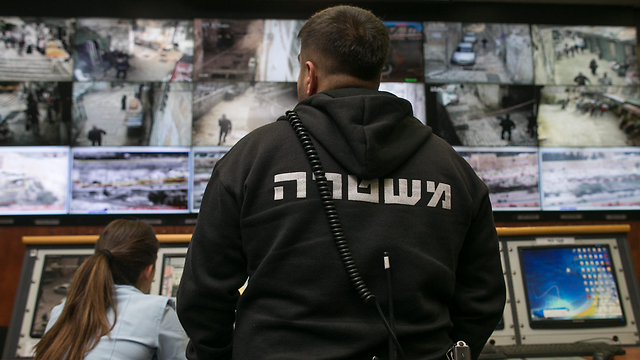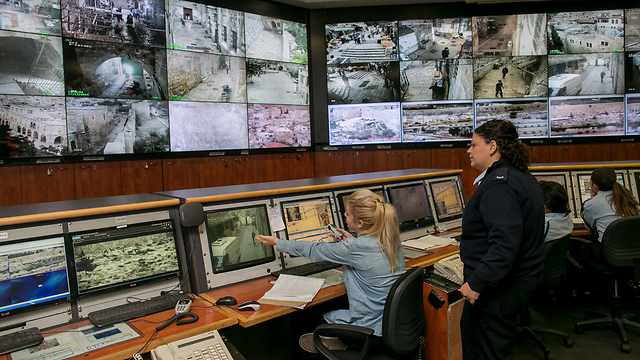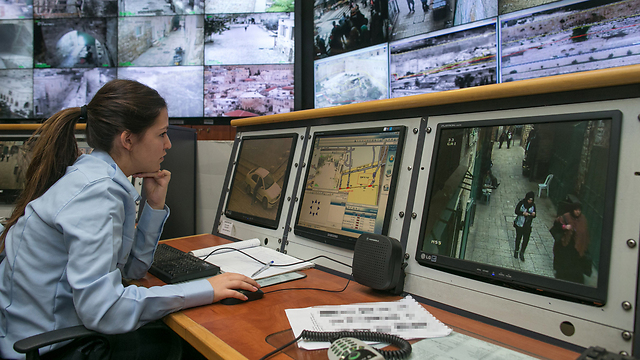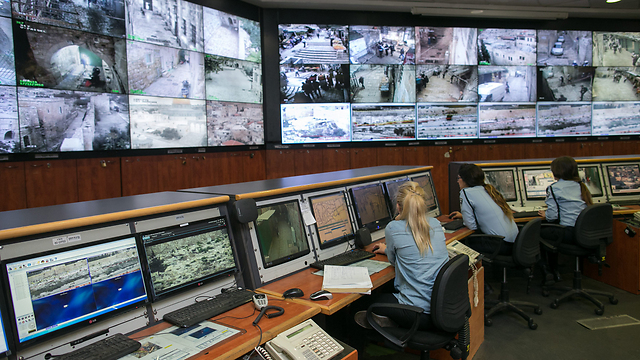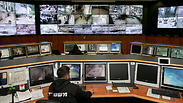
The Jerusalem Police's Mabat 2000 unit operates some 400 security cameras all over the Old City. It were these cameras that documented many of the terror attacks that plagued the nation's capital in recent weeks, and these cameras that helped police track down the perpetrators who got away.
"Mabat" is an acronym in Hebrew that stands for "technological surveillance center," as well as a word which means "look."
The unit, whose cameras give real-time footage of almost every alley in the Old City, has been security forces' eyes for a while. Its members have identified terrorists many times, leading to their quick arrests.
The unit is expected to receive a significant upgrade soon, with new and improved cameras replacing older models.
"We have a 95 percent identification rate, there's nothing like it anywhere else," said Doron Turgeman, commander of the Jerusalem Police's David subdistrict, "I think any police commander would dream of something like this."
"The unit was established ahead of the year 2000, ahead of the Pope's visit, due to a multiplicity of attacks on Jews, and terrorist attacks in the Old City. The idea is to prevent and identify. With time, our technology and methods have been upgraded," said Mabat 2000's commander, Superintendent Shahar Ivgi.
The unit's command center has dozens of screens, that show what's happening in the Old City in real time. "All of the forces in the field get the same real-time reports. We also know how to prevent attacks before they occur," Ivgi said.
He demonstrates this when he shows a video from one alley near one of the Temple Mount's gates, in which Mabat 2000 officers identify a masked man coming towards police officers in the field. After getting the report from the command center, the officers were prepared.
It's important to note, however, that the unit's cameras don't cover the Temple Mount area, and the Israeli-Jordanian initiative to put cameras at the Mount will not be part of the unit's operations.
Sgt.-Maj. Rotem Benbenisti-Cohen, now responsible for the unit's training, aided in the arrest of a terrorist a few months ago which she found after an attack at the Damascus Gate.
"I came in for the morning shift and the night shift supervisor briefed me there was a screwdriver stabbing attack at the Damascus Gate, and that the attacker had fled," she said. "For me, there is no such thing as not finding someone. I started to dig and scan, one camera after another, going back and extracting more details. The attack happened at night, so I focused on his sideburns, the young face, I focused on several things – the bag, the shoes, several markers that could help me find him at other hours of the day, because the picture changes."
When Benbenisti-Cohen and another officer scanned the area, they saw the suspected terrorist return to the scene of the attack. "He was holding a sandwich, eating, and looking at the cameras," Benbenisti-Cohen said.
At this point, the two officers directed police in the field to the suspect, who was arrested in a nearby alley. When he was interrogated, it turned out that the man had committed another stabbing attack months before, at the Jerusalem light rail station on HaNevi'im Street, which hadn't been solved up to that moment.
"If he hadn't been caught, he could have went on," Benbenisti Cohen said.















